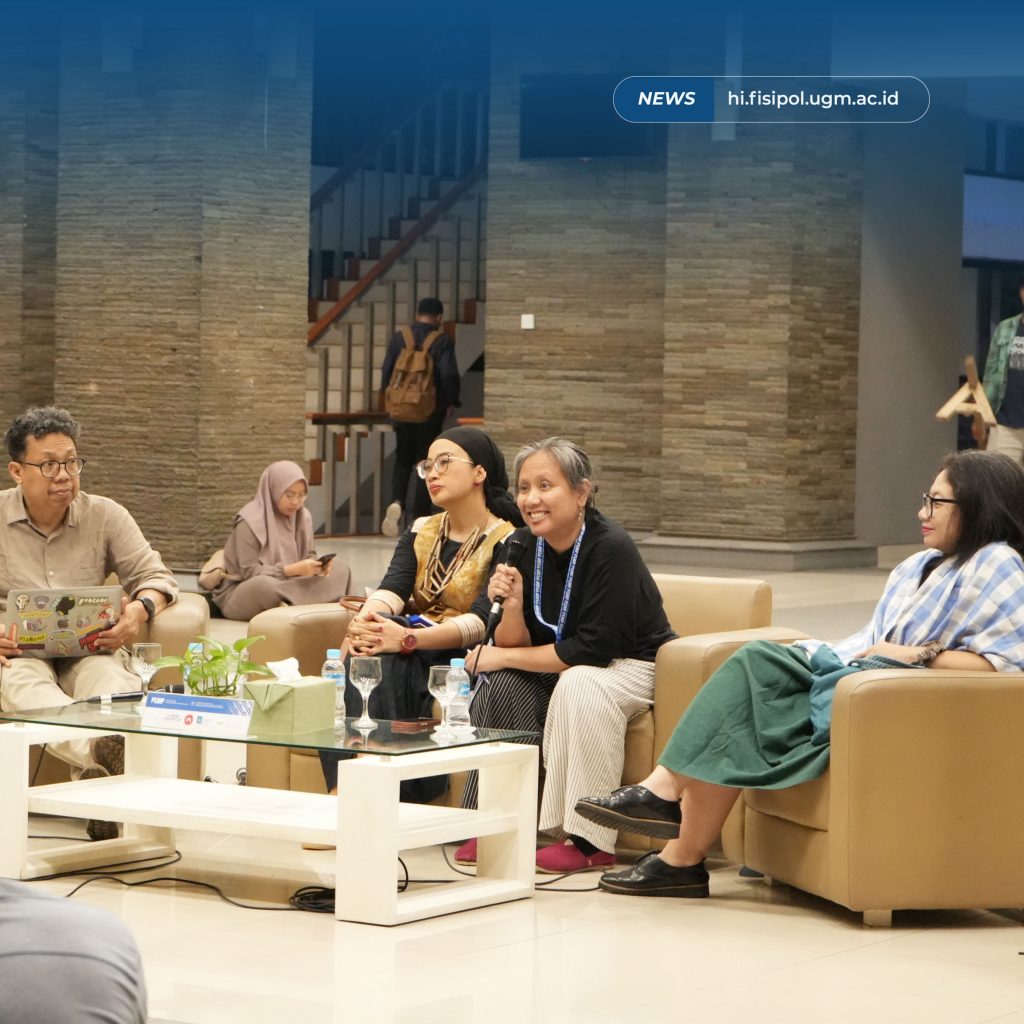“Whose popular culture?” This was the central question explored in the opening talk show of the Popular Culture and World Politics v15 Conference (PCWPv15) held on Tuesday (19/11) at Selasar Barat, Universitas Gadjah Mada (UGM). Organized by the Master Program in International Relations UGM, the event featured three prominent Indonesian curators, Alia Swastika (Jogja Biennale Foundation), Budi Irawanto (Jogja-NETPAC Asian Film Festival [JAFF]) and Okky Madasari (ASEAN Literary Festival). A total of 50 participants attended the discussion, moderated by diah kusumaningrum (Department of International Relations, UGM).
diah guided the discussion with two key questions: what motivated the speakers to emphasize non-mainstream perspectives in their work and activism; and what challenges have they faced?
Okky Madasari shared her concerns about the lack of connectivity among Southeast Asian societies, which remain shackled by stereotypes about one another. The absence of a sense of belonging, according to Okky, is largely due to linguistic barriers. Most literature is available only in local languages, which is worsened by the lack of serious effort to translate works across the region. This motivated Okky to actively strengthen grassroots connections, one of her initiatives being the ASEAN Literary Festival. Beyond language, Okky identified societal taboos as another major challenge, as many topics and issues are deemed controversial, resulting in the banning of books, discussions, or cultural festivals.
Budi upstarted his comments by continuing Okky’s point about censorship. He explained how JAFF strives to redefine inclusivity in Southeast Asia by showcasing not only non-mainstream movies but also those that explore taboo narratives. For example, the Malaysian film The Last Communist (2012), which was banned for allegedly promoting communist ideology, and the Singaporean documentary To Singapore With Love (2013), which was prohibited for criticizing the government’s treatment of political prisoners. Budi added that although more movies are now daring to address critical and sensitive themes, film censorship still exists in Indonesia. He then concluded that such censorship limits opportunities for creating more inclusive discussions through movies.
Meanwhile, Alia encouraged participants to critically examine the meaning of “international.” This drive also motivated her to introduce Indonesian culture to global audiences and collaborate with communities from the Global South. Alia highlighted how definitions of cultural products and the actors deemed “international” are often biased towards Western, particularly European, perspectives (Eurocentrism). To challenge this, she has actively involved local communities, especially those from the Global South, such as India, Brazil, and countries in the Middle East, Southeast Asia, and Oceania, in organizing Biennale Jogja. Many Biennale activities are held in villages and community centers to foster deeper connections among communities.
The PCWPv15 conference will run for four days (19–22 November 2024). In addition to the opening talk, the conference includes various sessions such as nine-panel discussions, two roundtable discussions, mentoring sessions, a Yogyakarta city tour, Beatles Night, and an exhibition featuring works from students in the Sciences, Technology, and Arts in International Relations (STAIRS) class.
A list of panels and paper titles is available on this page.
======
Authors: Salsabilla Azzahra Octavia, Aisya Todoroki
Editor: Nurhawira Gigih Pramono



